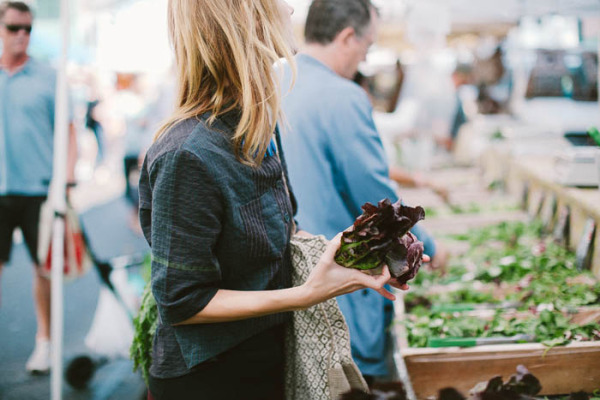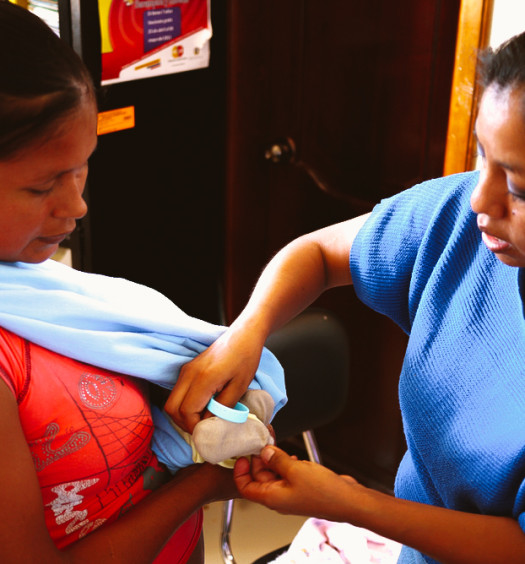Greenwashing: Are Your “Natural” Products the Real Deal?

Editor’s Note: Elizabeth Wasserman of TrueGoods.com joins Conscious Magazine to launch a column on Consciously Clean Living . This topic is important to Elizabeth because of her passion for empowering people to lead healthier lives through honest, accurate, relatable and personally-tested information. Check out her interview and feature here.
From hybrid vehicles and reusable shopping bags to shopping local and BPA-free, it’s undeniable that “going green” is one of the fastest growing trends out there today. This is great news for the eco-minded consumer, as companies are scrambling to offer cleaner and greener versions of their products to meet demand. Unfortunately, many companies have also noticed that it’s much cheaper to claim to have environmental standards than it is to actually live by them.
When a company misleads its customers about the human health or environmental impact of its products or practices, it’s called greenwashing.
Many of us are aware of the high profile instances (BP after the oil spill, anyone?), but the practice isn’t limited to corporate makeovers. Greenwashing occurs from national ad campaigns down to labels on the products you buy everyday. In a 2010 study, TerraChoice investigated the claims of 4,744 “green” products carried in stores across the USA and Canada.
Over 95% of products reviewed were guilty of at least one of the ‘Seven Sins of Greenwashing’:
01 | Hidden Tradeoff: Labeling a product as environmentally friendly based on a small set of attributes (e.g., made of recycled content) when other attributes not addressed (e.g., energy use of manufacturing, gas emissions, etc.) might make a bigger impact on the eco-friendliness of a product as a whole.
02 | No Proof: Making an environmental claim without providing easily accessible evidence on either the label or the product website (e.g., a light bulb is touted as energy efficient with no supporting data).
03 | Vagueness: Using terms that are too broad or poorly defined to be properly understood (e.g., an “all-natural” cleaner may still contain harmful ingredients that are naturally occurring).
04 | Irrelevance: Stating something that is technically true but not a distinguishing factor when looking for eco-friendly products (e.g., advertised as “CFC-Free,” but since CFCs are banned by law this is unremarkable).
05 | Lesser of Two Evils: Claiming to be greener than other products in its category when the category as a whole may be environmentally unfriendly (e.g., an organic cigarette may be greener, but, you know, it’s still a cigarette).
06 | Fibbing: Advertising something that just isn’t true (e.g., claims to be Energy Star Certified, but isn’t).
07 | Worshipping False Labels: Implying that a product has a third-party endorsement or certification that doesn’t actually exist, often through the use of fake certification labels.
Greenwashing is rampant, which makes it difficult to know who to trust.
That’s why at True Goods I make sure to investigate the environmental claims of each and every product you’ll find on our online shelves. It takes a lot of work, but luckily I’ve got allies in the fight for honesty in advertising. In 2010, the Federal Trade Commission established a guide to set the standard for environmental marketing and help define what terms like recyclable, compostable, and non-toxic really mean.
There are also a growing number of health and eco-labels, such as USDA Certified Organic, Non-GMO Project Verified, Fair Trade, and Energy Star, which are certifications provided by dedicated organizations for products that meet their strictly defined standards. These are often more credible than the labels provided by manufacturers, since they’re given from an impartial third-party and often take into account the entirety of a product’s manufacturing process.
Increasingly, companies are realizing that customers care a lot about the safety of products for themselves and their loved ones, and won’t tolerate toxins or harmful ingredients. Gradually, they’re starting to require that the products they carry must move people toward better health and our environment toward greater sustainability. Nonetheless, the task of product safety verification still largely falls to the everyday consumer.
Here are some simple ways you can keep greenwashing out of your products and your home:
- Tell a friend. If more people are aware of the problem it’s easier to combat.
- Be on the lookout for the Seven Sins on your product labels. Play Name That Sin for practice.
- Print out this fact sheet to carry in your wallet for on-the-go reference.
- Shop with companies dedicated to human and environmental health, and true honesty in advertising.
Learn. Connect. Act.
Learn more about True Goods
Connect via Facebook, Twitter, and The Good Blog
Act Subscribe to the True Goods newsletter
From the Editor
At Conscious, we are inspired by remarkable people, and so we set out to tell stories that highlight real human interactions and human dignity. You can read more stories like this when you pick up your copy of Conscious Magazine. Subscribe today via our Conscious Shop and subscribe to Conscious Updates.


